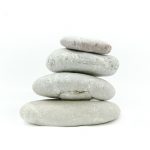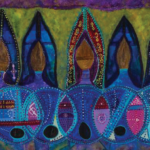Back to school: Why being a journalism student is like preparing for the gold rush
A recent Wilfrid Laurier University journalism grad advises students to learn all the hard skills they can while still in school, whether inside or outside of the classroom.
By Meagan Gillmore
Seeking a journalism career is like preparing for the Klondike Gold Rush.
In the 1890s, thousands of people stampeded Canada’s North, looking for gold, adventure, escape. But not everyone who wanted it could cross the Yukon’s borders. The Northwest Mounted Police required people wanting to enter Canada to have very specific equipment that would be essential for their success.
I think journalism students should apply the same thinking to their schooling. As a recent journalism grad, I suggest you look through your course list with the eyes of a Mountie.
I wish I had.
Related content on J-Source:
- Back to school: How to succeed at an internship in a city you’ve never been to before
- Back to school: Want to work overseas? Do your research
- Back to school: How to land a job out of j-school
I studied English and journalism at a liberal arts school. I spent more class time analyzing pronouns and theories about propaganda than I did constructing inverted pyramids. I’m grateful for this. Long nights spent dissecting Victorian novels reminded me of the sheer importance of words—and they prepared me for evenings spent listening to city councillors discuss trail committees, fire truck purchases and parking bylaws.
But I wish I’d practised more hard skills: laying out pages, designing websites, shooting video, working a microphone, capturing a photo. Remember, you’re about to enter tough terrain. If a class has the word “skills” in the title or description, make sure you leave with the ability to use these skills outside of the classroom or lab. If your program isn’t able to offer this, don’t ditch the ivory tower. Instead, find someone who can teach you.
Look for ways to get outside of the classroom. If a course promises to teach you about political reporting, expect to darken the door of city hall—often. Court reporting classes should require you to sit through court cases and learn to read a docket. If the syllabus doesn’t mandate this, hike down to the courthouse or city hall and sit there yourself. Write about it. Introduce yourself to the staff and ask about their jobs. Pick the brains of beat reporters. You aren’t their competition—yet.
My program was relatively new, without all of the opportunities and technology available to students at more-established schools. I took this as a reason to fill the pages of the school paper. I later joined the editorial board and edited others’ work while writing my own. I asked professors questions after class. I went to guest lectures. I attended regional and national journalism conferences. I don’t regret any of this.
Learn about journalism every way you can. But learn about other subjects, too. I intentionally took criminology and health studies courses because I knew I’d be reporting on cops and doctors at some point. (I did—within days of starting my first job.)
[node:ad]Along with inspiring legends, journalism resembles gold mining for another reason.
It’s boring sometimes.
You need to know this. If you’re like me, you grew up surrounded by ways to express your thoughts about anything to anyone. You want to use words to change the world for better. That’s good.
But real change happens slowly. Ideas are weightier than 140 characters. The world is bigger than my so-called “friends” and “followers.” As journalists, it’s our responsibility to learn about other perspectives. Hold leaders accountable, but don’t be unnecessarily antagonistic. Phrase your questions about big ideas simply. Research others’ views vigorously. You’re always learning.
I graduated with top grades, won a social justice award for my reporting in the school paper—and spent my first few months as a reporter barely able to talk about my job without bursting into tears, convinced every typo spelled my immediate dismissal. I had gone bust. Robert Service’s “Spell of the Yukon” includes the confession, “you hate it like hell for a season.” My thoughts on journalism exactly, Robert.
Mistakes happen. Improvements won’t happen overnight. It gets better. If your “season” lasts too long, ask for help. Even independent pioneers need others.
Because mining for gold, in wilderness and writing, has changed. I don’t know what the future of journalism looks like, but I know the future includes journalism. So I’ve returned to school, to gain some of those skills I missed previously.
I’m still searching for gold, like when I started school years ago. You probably are, too. Go prepared. Walk even when you feel lost.
Journalism has its own spell. You may come back—but once it catches you, you’ll never be the same.

Meagan Gillmore graduated from Wilfrid Laurier University’s Brantford, Ont., campus in 2011. That year, she won the David S. Barr Award in the college division from The Newspaper Guild-CWA. She worked as a freelance writer before landing a job as a newspaper reporter with, you guessed it, the Yukon News in Whitehorse. She currently attends the Book and Magazine Publishing Program at Centennial College in Toronto.
Tamara Baluja is an award-winning journalist with CBC Vancouver and the 2018 Michener-Deacon fellow for journalism education. She was the associate editor for J-Source from 2013-2014.




